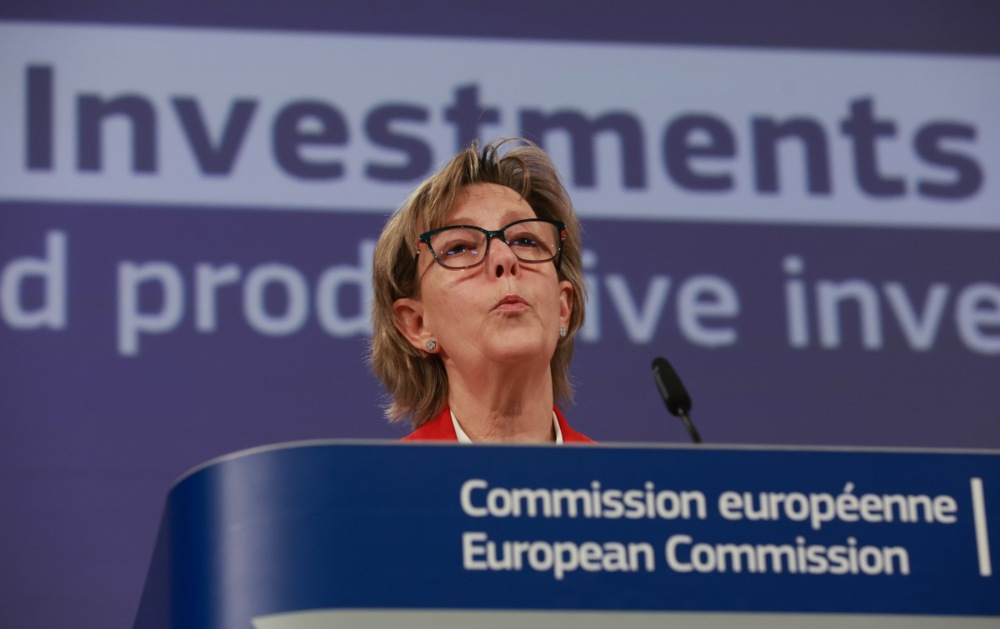Sixteen Western European banks have rolled out Wero — a new payment system aimed at reducing Europe’s dependence on Visa, Mastercard, and other US fiscal networks.
Unlike previous so-called “sovereignty” projects, this one was driven by the banks themselves.
Wero is a mobile initiative for sending and receiving money instantly. As opposed to other apps and online systems used by European banks, it worked across countries’ borders and let users pay by simply scanning a QR code or selecting a contact in their phone.
However, for now, Wero’s rollout remained limited to Belgium, France, Germany, the Netherlands, and Luxembourg.
Marinka Vangenk, in charge of media relations at Belfius, one of the Belgian shareholders of Wero, stressed the ‘pan-European’ aspect of the new solution, which “brings together in a single payment solution for all Europeans. ….it is based on instant payments from account to account and will further streamline payments in Europe”, she told Brussels Signal on July 9.
Daphne Poets, spokesperson for ING Belgium, another shareholder, told Brussels Signal the same day that the goal was not just local convenience but global positioning.
“Wero is a new European payment service from the European Payments Initiative, created by a group banks … to compete directly with PayPal, Mastercard and Visa,” she said.
To experts, the fact that no Central, Eastern, or Southern European banks have yet joined, illustrated a well-known European limitation to reducing dependence on US companies: Fragmentation.
Despite calls for a “European solution,” each country still tended to build its own systems. Two reports published last year by former Italian prime ministers, Enrico Letta and Mario Draghi, warned that unless national payment systems were made interoperable, or phased out entirely, no true EU-wide wallet would ever work.
And while that was exactly the problem Wero was trying to fix, “you can’t build sovereignty on fragmented foundations,” the Draghi report noted. “You have to either unify or connect. And connecting is often the harder option.”
The same point was echoed by Denis Beau, first deputy governor of the Banque de France, the French Central Bank, who has expressed clear support of Wero and EPI.
In a speech on June 26, Beau pointed to the “high dependence on non-European actors” in digital finance.
“The payment ecosystem is transforming rapidly. To guarantee sovereignty, innovation must go hand in hand with security,” he said. “We must support European solutions like Wero and make sure they’re interoperable.”
Interoperability is the hard part. To build a single European wallet, countries must either retire their national apps — or make them work seamlessly with Wero. That meant aligning technical standards, regulation, user interfaces and even branding.
Some national champions from other parts of Europe — such as Bizum in Spain and Bancomat in Italy — have joined a separate alliance called EuroPA, which has a partnership with EPI that Beau said the French central bank also warmly welcomed.
Still, as yet no single wallet connects everyone.
For many countries, joining Wero meant giving up a homegrown brand. And for now, few seemed willing to do that.
Wero is the core product of the European Payments Initiative (EPI), a joint effort by 16 major commercial banks and payment providers across France, Germany, Belgium, the Netherlands and Luxembourg.
EPI is a private initiative launched and funded by the banks themselves in an effort, they said, to create one unified wallet for all Europeans.
Most of the banks behind Wero had already built their own national solutions. In France, for instance, Paylib was used to to transfer money between users — but only using French bank accounts.
Carla Portier, press officer at Wero, told Brussels Signal on July 9 that this has changed, “now that French banks have replaced Paylib with Wero…. Paylib only allowed person-to-person payments within France”.
In Belgium, four founding banks — Belfius, ING, KBC and BNP Paribas Fortis — were shareholders in EPI, and were all shareholders of the previous Belgian solution, Payconiq.
Five more banks — Argenta, Bank Van Breda, Beobank, Crelan and VDK — planned to join the system in 2026.
Spokesperson for the Belgian banks that are part of EPI told Brussels Signal on July 9 that Payconiq was gradually moving to the Wero platform.
Jonathan Romain, CMO of Payconiq by Bancontact, clarified the situation. “It’s not Payconiq launching Wero. It’s a different company, with a different system. But we’re working with them — especially on the merchant side,” he said, in an interview with Brussels Signal.
What was changing, though, is what happened in the background. Belgian banks that previously used Payconiq were switching over to Wero’s infrastructure, which he described as “rails” — the invisible technical tracks along which payments travel.
“Until now, Belgian banking apps used the Payconiq rails,” Romain said. “In the future, they’ll use Wero’s.”





